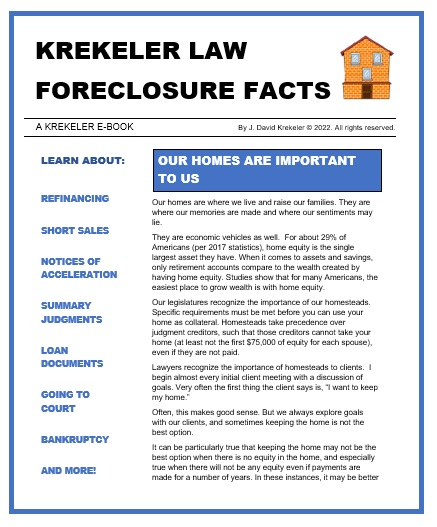Yes. The court will mail a notice to all creditors. That notice will show the names of the debtor(s), the filing date, and the date set for the Meeting of Creditors. It will also show the deadline by which any creditor may file a request to have the discharge denied or to object to the dischargeability of any particular debt. If there are assets to be distributed, the notice will show the date by which creditors must file a proof of claim in order to share in that distribution.
All creditors and interested parties are required by law, to be listed. The debtor signs all of the bankruptcy documents under penalty of perjury. This means it may be a federal felony to intentionally misstate or omit information.
We work with our clients to make sure all creditors, even those with contingent claims, are listed, and that all interested parties are included. Examples of creditors and parties who might otherwise be omitted including the following:
- Former spouses. The fact that a debt was assigned to the debtor in a divorce does not necessarily mean that the other spouse is no longer liable.
- Friends and relatives. Often, the debtor will not want to list these persons, but federal law requires such listing. Fortunately, we have developed methods to avoid this problem.
- Former landlords. People sometimes forget that the landlord may still have a claim for damages, even if it is not yet being pursued.
- Former business partners. Like landlords, such persons may believe they have claims and the safest approach is to list them and eliminate those claims.
- Anyone involved in an auto accident with the debtor, including insurance companies which may be involved. The debtor may believe that he or she was not liable for the accident, but it is prudent to list these persons and eliminate any threat of future problems.
- Co-signers, guarantors, and co-debtors. Such persons may have claims against the debtor if the joint obligation is at any time paid by the co-debtor. Listing such persons in the bankruptcy eliminates this problem. Co-debtors may also be entitled to protection during the bankruptcy case, depending upon the facts and circumstances.
People often do not want to list creditors with whom they are friendly. They want to pay these people. A bankruptcy discharge does not prevent the debtor from paying anyone. Voluntary payments can always be made without problem.

